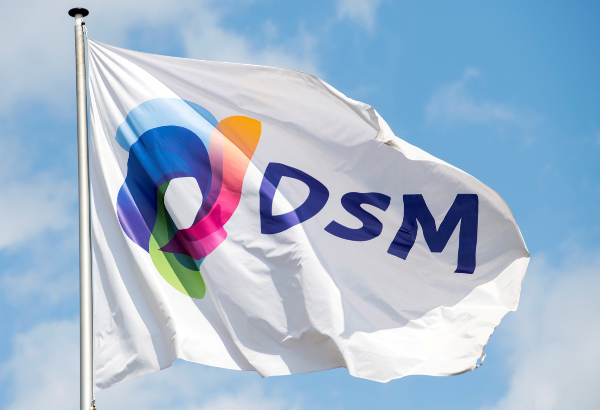Nutrition company bets big on China venture

Royal DSM, the Dutch company in nutrition, health and sustainable living, is looking to secure high-quality and sustainable supply of vitamin E through its joint venture in China, said company officials.
Royal DSM and its Chinese partner Nenter & Co Inc have recently completed the creation of a 75:25 joint venture Yimante Health Ingredients (Jingzhou) Company Ltd. The JV acquired all Nenter's vitamin E production and related assets with an aim to offer locally produced high quality vitamin E for animal nutrition in China and Asia-Pacific while also strengthening DSM's global supply chain footprint, said Andre Bos, president of global production and strategic alliances.
The venture will upgrade and refurbish the facilities to secure high-quality and sustainable supply of vitamin E, which complies with DSM's safety, health and environmental standards, Bos said.
"China's market for vitamin E is significant. Demand for vitamin E in the feed industry is high, and China is now the second-largest feed producer in the world, producing 150 million metric tons of feed in the first seven months of 2019, up 4.2 percent year-on-year," Bos said.
Vitamins play an important role in both human and animal nutrition, and their main applications are in food and beverages, medicines and cosmetics, and feed additives.
DSM has been active in China since 1963 and has cooperated with Chinese local partners.
China has become the center of vitamin production in the world. In fact, China is at present one of the few countries that can produce all vitamins and has therefore gained a competitive edge internationally in multiple vitamin segments.
Luca Rosetto, senior vice-president of operations for DSM nutritional products, said population growth and the rising Chinese middle-income group have both contributed to the rise of nutritional intake as well as meat consumption, which has in turn led to increasing demand for higher-quality feed ingredients.
Rosetto said: "The industry has reached a certain maturity and is entering the next stage where companies apply technology breakthroughs to achieve higher quality and higher productivity and thereby compete with the top market players."
The industrial concentration of vitamin E is relatively high. The emergence of new entrants in recent years has led to fierce competition, and vitamin E prices have declined, Qiu Xiaofeng, an analyst with Everbright Securities, said.
Given the industry's hightech and financial barriers, the lower probability of new entrants, the industry pattern is improving and vitamin E prices are expected to continue rising, Qiu said.
Invest in China Copyright © 2024 China Daily All rights Reserved
京ICP备13028878号-6
 京公网安备 11010502032503号
京公网安备 11010502032503号





